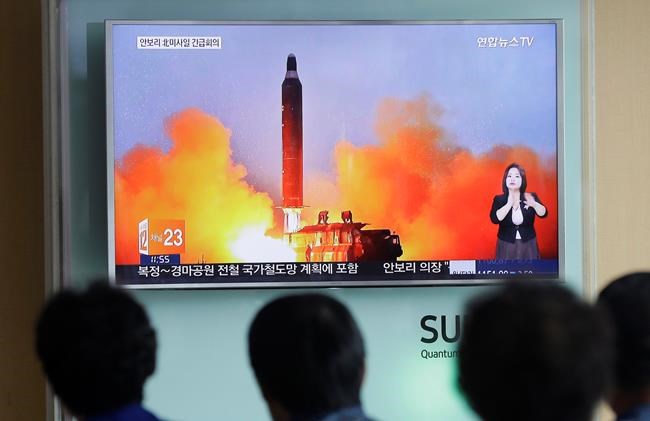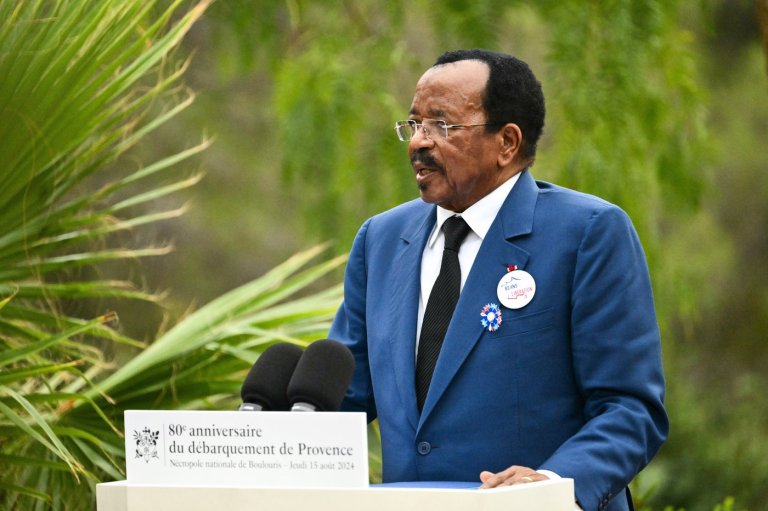
WHY IT MATTERS: North Korea
WASHINGTON – THE ISSUE: Pariah state North Korea could soon be capable of targeting America with nuclear weapons. Economic sanctions and diplomatic isolation have failed to halt its progress. What can the U.S. do to stop the authoritarian government from building up a nuclear arsenal that threatens the United States and its allies in Asia?
___
WHERE THEY STAND
Republican Donald Trump says the U.S. can put more pressure on China to rein in its unpredictable North Korean ally. He has suggested that Japan and South Korea could get nuclear weapons to defend themselves rather than depend on the U.S. military. But he’s also ready to meet the North Korean leader. Democrat Hillary Clinton isn’t contemplating a face-to-face with Kim Jong Un, who has met no other foreign leader. She wants the international community to intensify sanctions on North Korea as the Obama administration did with Iran, which eventually opened the way for a deal to contain its nuclear program.
___
WHY IT MATTERS
Unlike Iran, North Korea already has the bomb. It has conducted five underground nuclear test explosions since 2006. In January, it claimed to have detonated a hydrogen bomb — a much more powerful device than in the previous tests — although the U.S. government doubts that claim.
North Korea is also working on ways to deliver nuclear weapons. After five failures, it successfully test-launched in June a ballistic missile that puts U.S. military bases in South Korea, Japan and Guam within reach. North Korea has displayed an intercontinental missile that could potentially hit the mainland U.S., although it has not yet been flight-tested. It could take several more years to perfect that missile, which can be moved by road, making it harder to destroy pre-emptively. The U.S. military has said North Korea may by now have developed a nuclear warhead small enough to mount on such a missile.
The U.S. keeps 28,500 troops based in neighbouring South Korea as a deterrent force, a legacy of the 1950-53 Korean War that ended without a formal peace treaty. North Korea is unlikely to launch a nuclear attack on the U.S. or its allies, a move that would invite its own destruction. But, mindful of the fate of ousted dictators in Iraq and Libya who gave up nuclear weapons programs, Kim is clinging to his. He views atomic weapons as a security guarantee for his oppressive regime. That is the main obstacle to resuming negotiations in which the North could win much-needed aid in exchange for disarming.
International attitudes to North Korea are hardening. The nuclear test in January triggered the toughest sanctions yet to restrict further the North’s access to foreign currency and weapons technology. But North Korea conducted another nuclear test in September, and U.S. officials say China’s imports of coal from the North, its main export, has continued unabated. In a sign of how seriously the U.S. takes the emerging North Korean threat, it is investing in missile interceptors in Alaska and California to combat it. U.S. experts estimate that North Korea has 13 to 21 nuclear weapons, and could have as many as 100 by 2020. That’s about 20 weapons fewer than what India is estimated to have in its arsenal today.
___
This story is part of AP’s “Why It Matters” series, examining three dozen issues at stake in the presidential election. You can find the series at http://apne.ws/2bBG85a
EDITOR’S NOTE _ One in an AP series examining issues at stake in the presidential election and how they affect people
Join the Conversation!
Want to share your thoughts, add context, or connect with others in your community? Create a free account to comment on stories, ask questions, and join meaningful discussions on our new site.










Leave a Reply
You must be logged in to post a comment.